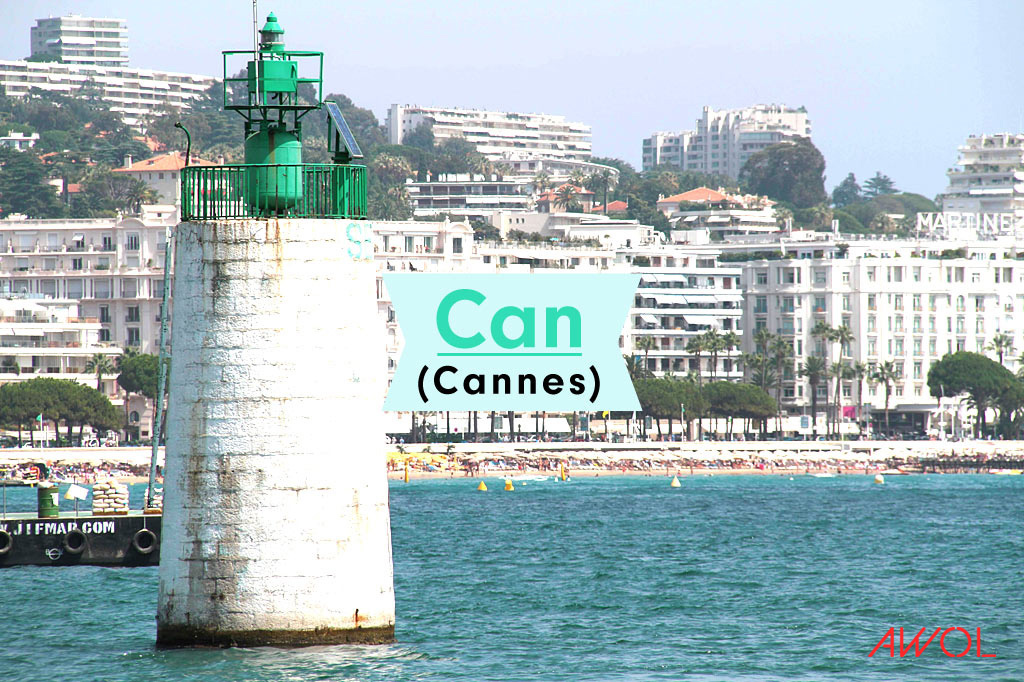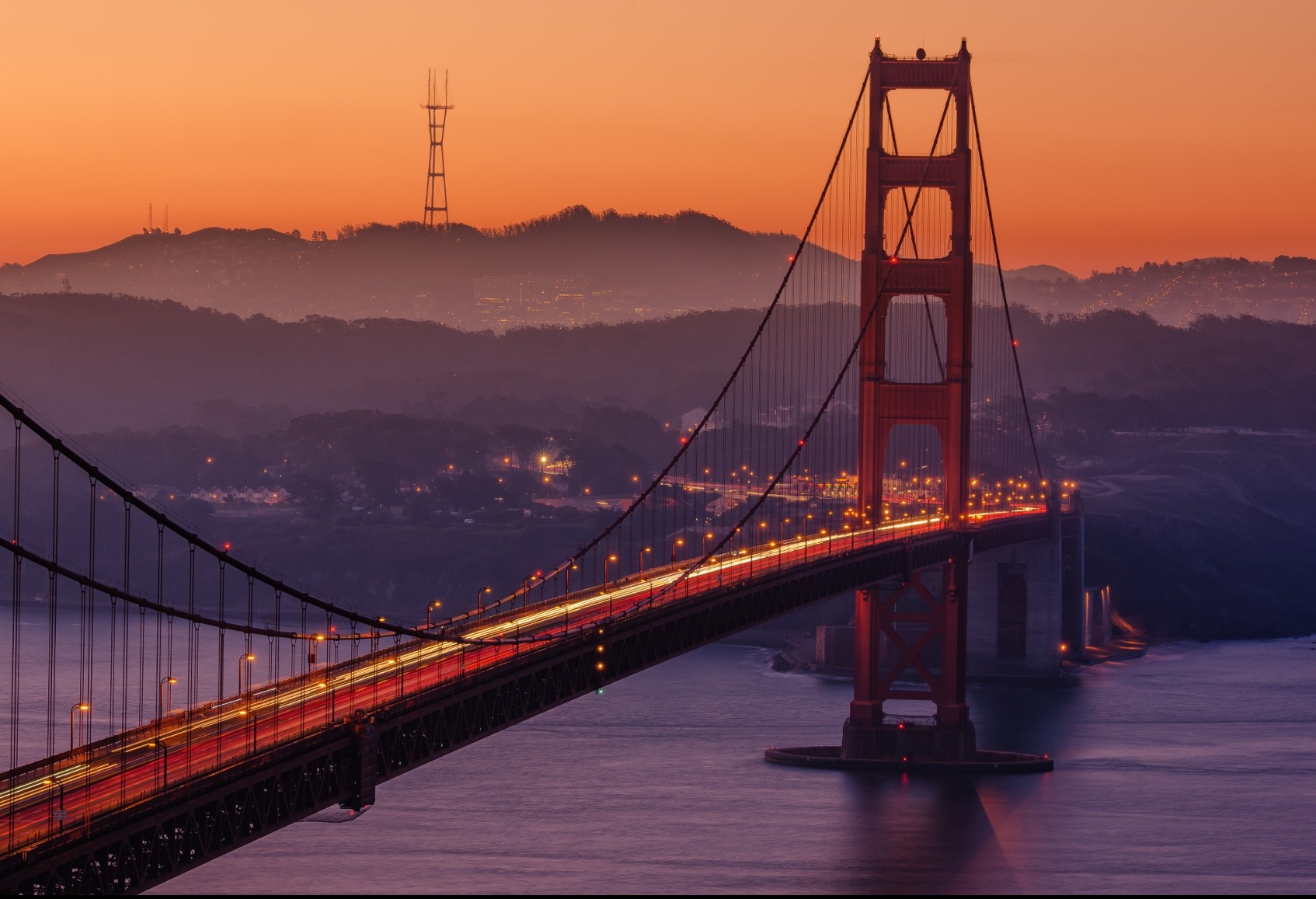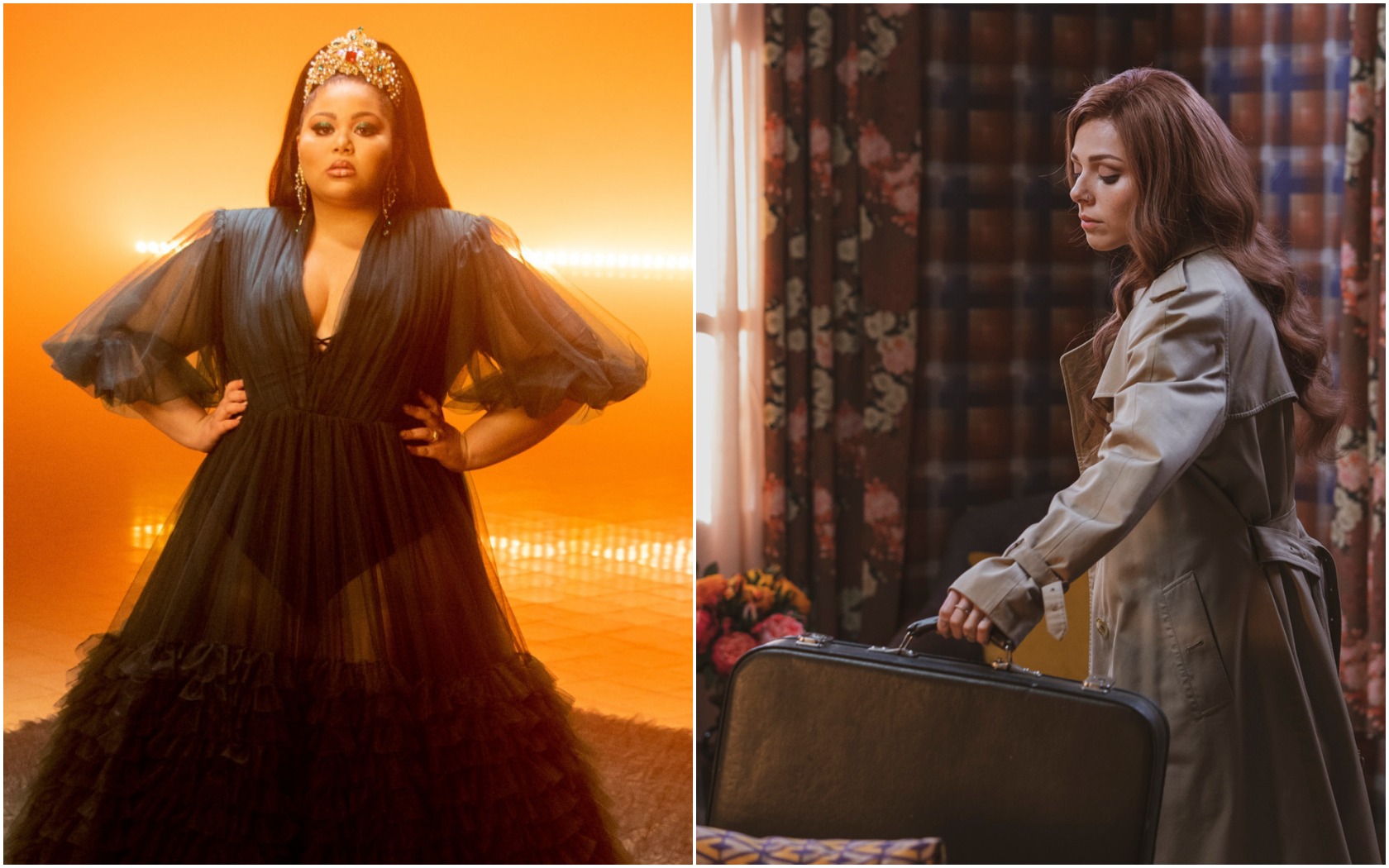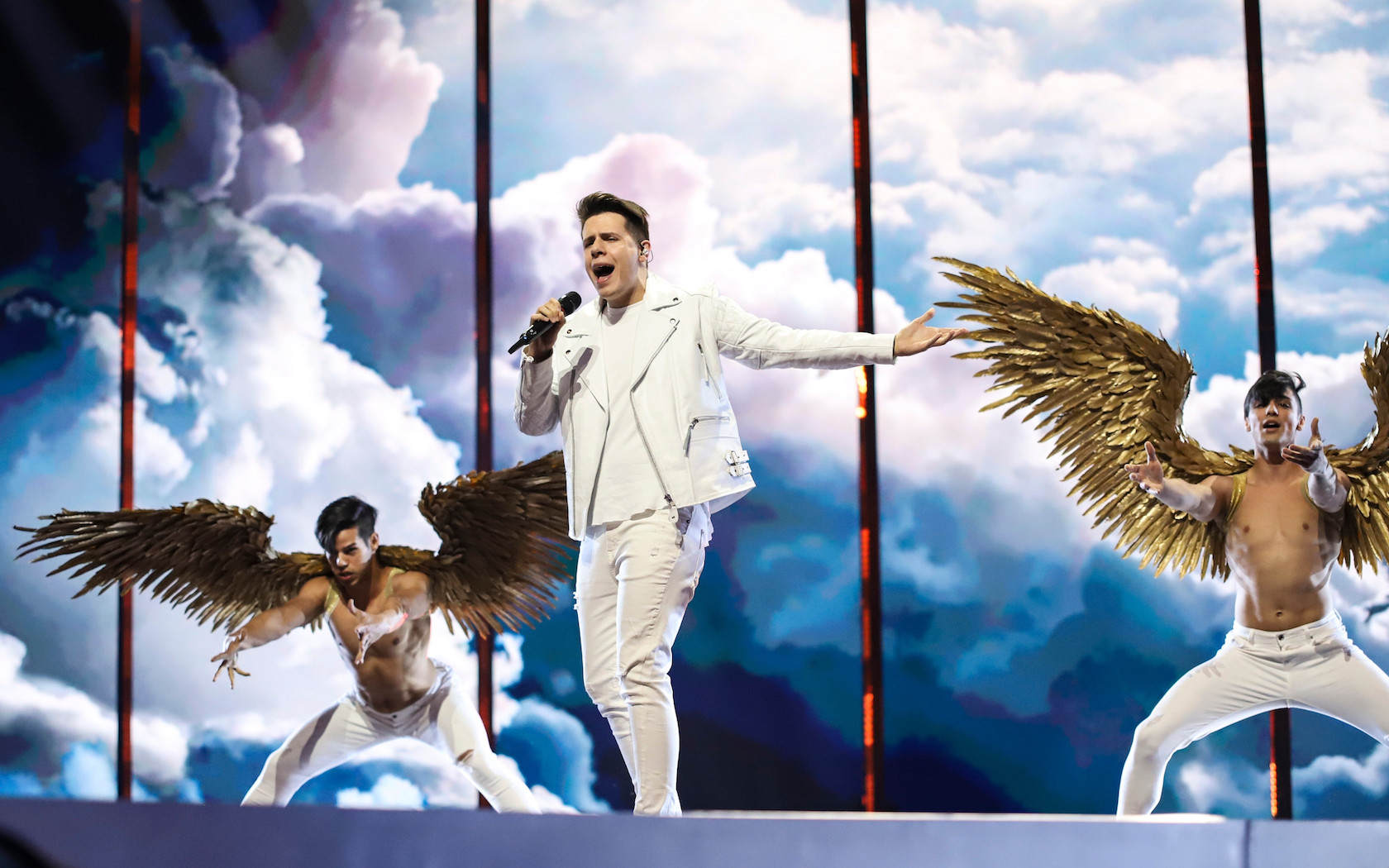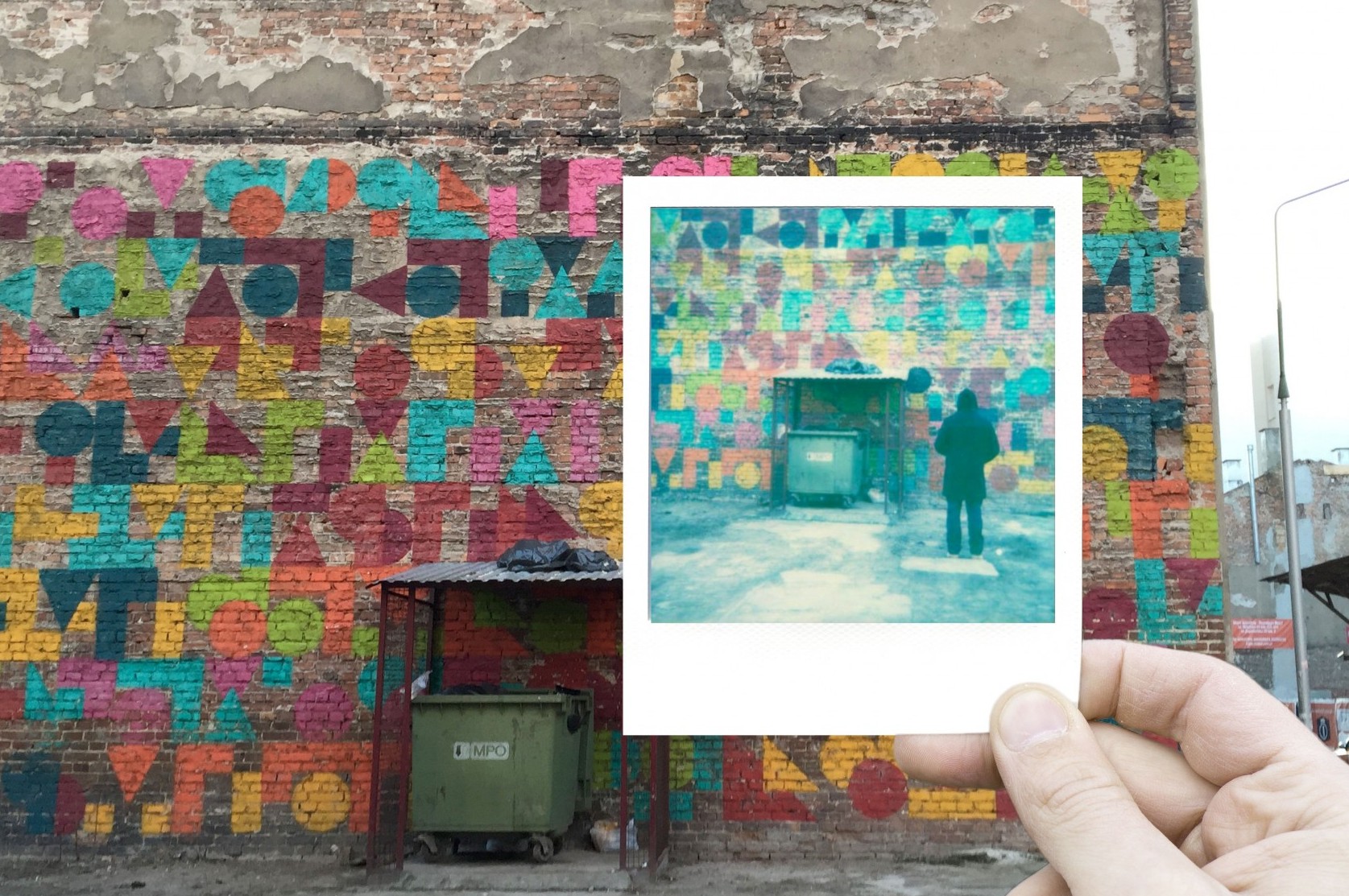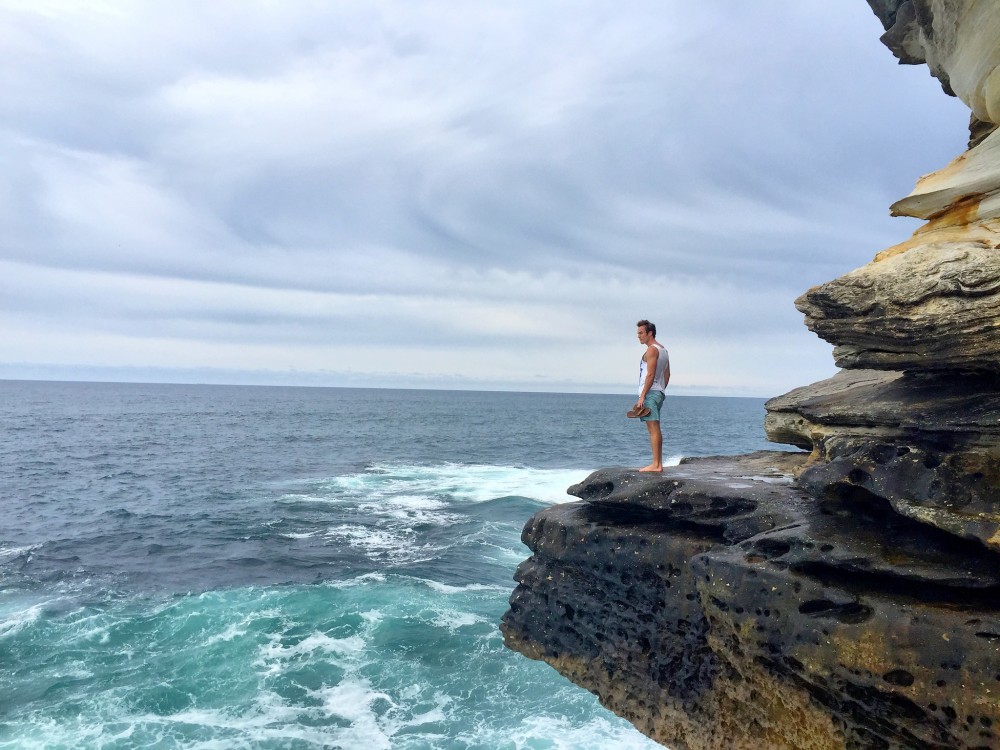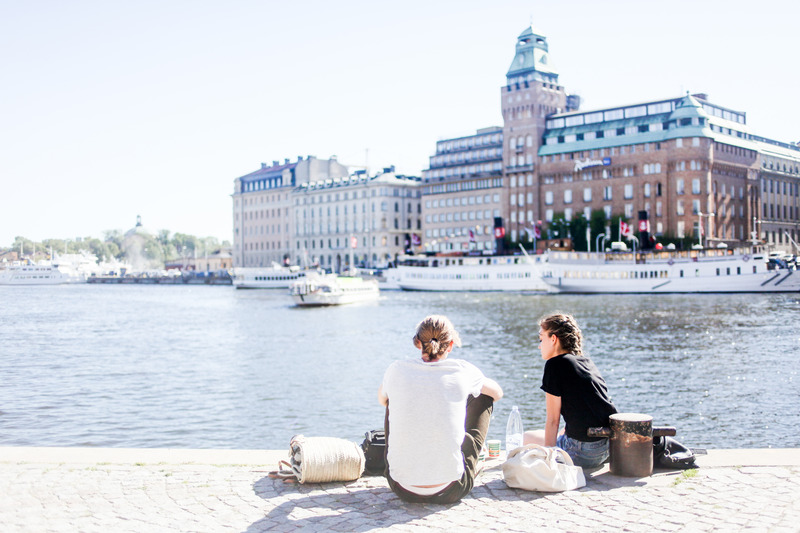5 Things We Learnt Behind The Scenes At Eurovision
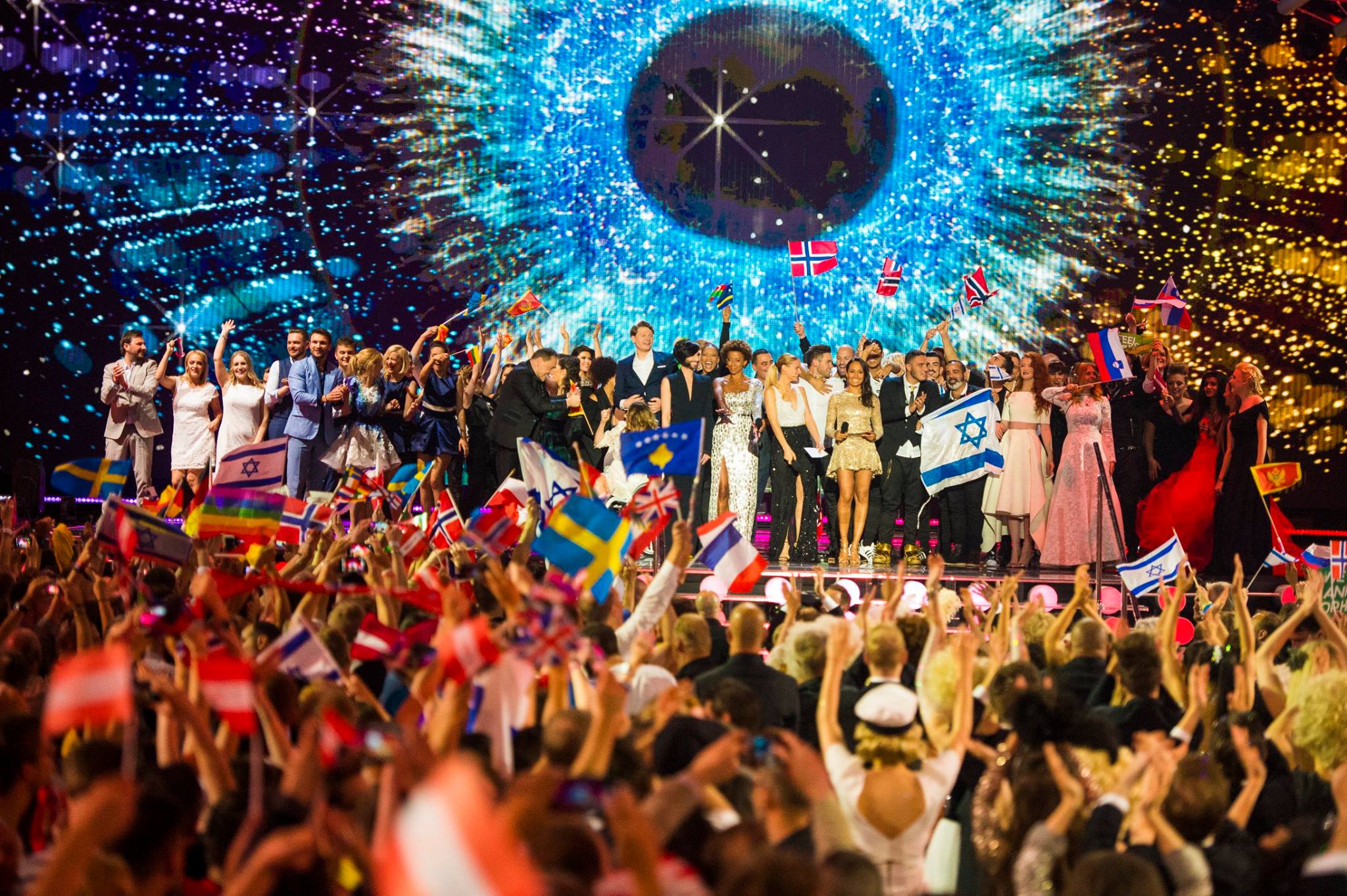
Jules LeFevre grew up in Byron Bay, and although she…
Did you know Eurovision doesn’t just go for three days? Oh no. Oh Lordy no you are mistaken. Welcome to the 60th Eurovision Song Contest, taking place over a crammed ten days of tech rehearsals, conferences, dress rehearsals, ceremonies, fan parties and finally…the actual shows. Tallying it up, if you wanted to pack in as much as you could (possessing heaven know what kind of will power), you could watch over 63.4 hours of Eurovision content over the contest. We know. Because we were there.
Gorgeous imperial Vienna is flooded with tourists, the streets around the Wiener Stadhalle bustling with fans lining up for tickets that have long been sold out, camera crews running in pursuit of performers, hundreds of earnest journalists furiously tapping at laptops. In the press room, questions like “DOES ANYONE REMEMBER WHAT THE 2008 ENTRANT FROM BELARUS WAS WEARING?!” are bellowed across the room, and discussed and answered with a degree of seriousness rarely seen outside of cricket commentary. Over 200 million people tune into the broadcast over the three nights, making it the biggest TV event in the world.
Here’s what we learnt on the ground.
#1 The politics were heavy this year
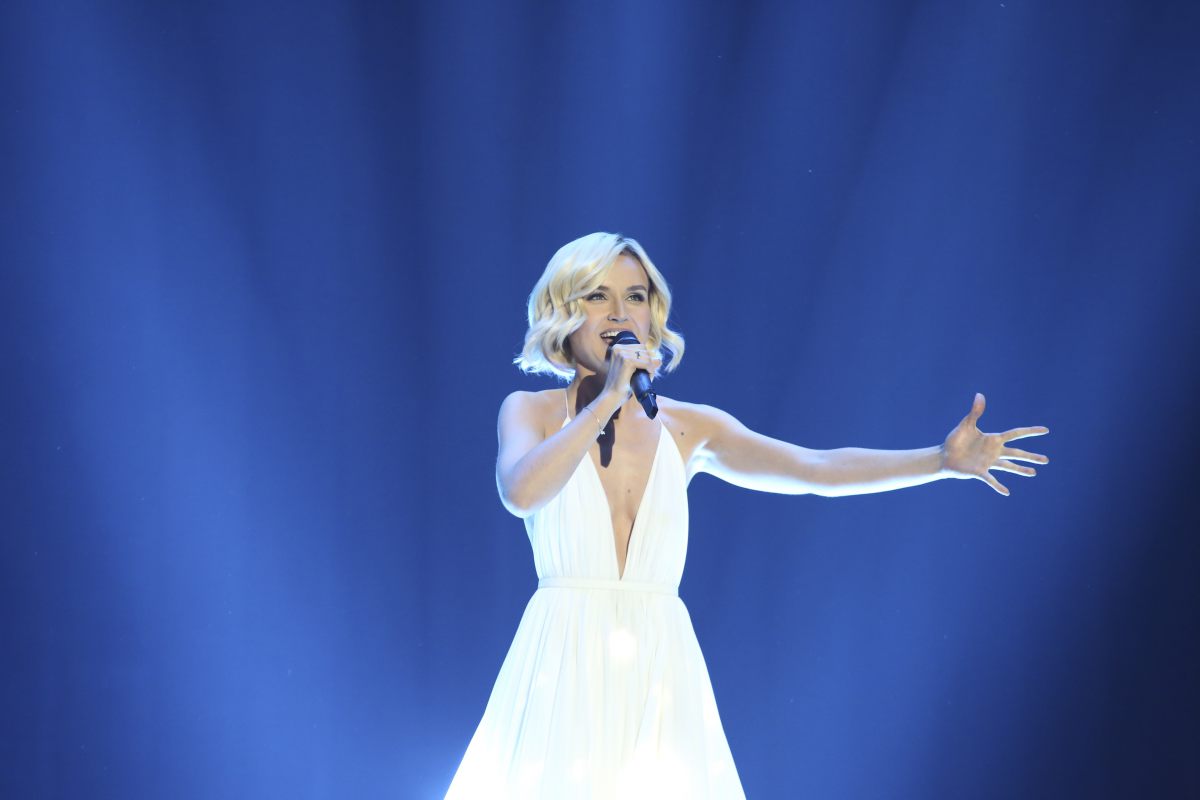
Eurovision, for all its surface ridiculousness, has always had strong political undercurrents. It’s typically obvious in the voting: the eastern bloc of countries vote for each other, Greece votes for Cyrpus, Cyprus returns the favour, everyone loves Ireland – no one votes for the UK. Aside from the voting, the absence of Turkey and Ukraine this year was notable – Turkey because they have objected to the way the votes are split between the national juries and the audience votes, and Ukraine for more obviously serious reasons.
Russia received a noticeably lukewarm welcome at the rehearsals, and during their live performance Pride flags were held over cameras in protest of the Russian governments anti LGBT policies. There was an especially tense moment in the post semi final press conference, when a question was pointed to Russian singer Polina Gagarina about LGBT rights. There was a moment of stunned silence, a flurry of translation, before she answered – as positively as one could when they are representing Putin’s Russia – calling for “one love” before breaking down in tears. This years theme “Building Bridges”, was perhaps the most pointed in years.
#2 It was the year of the power ballad
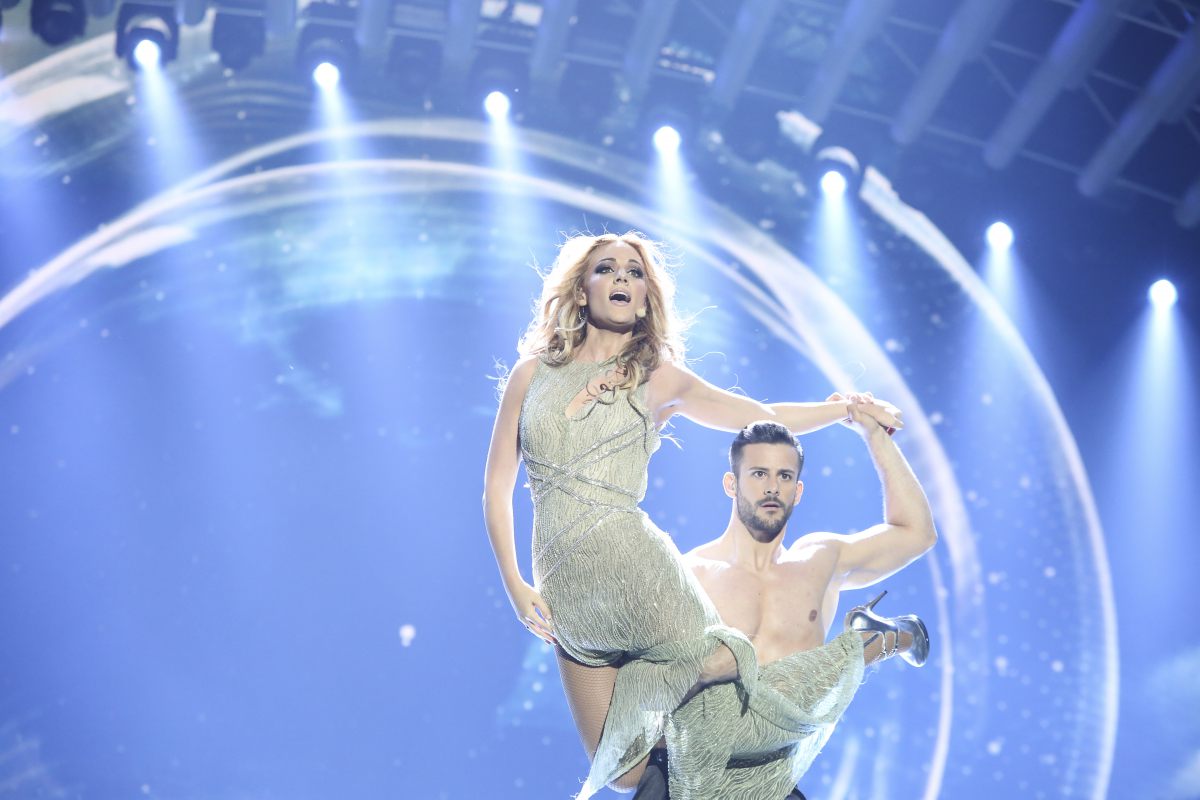
From the Czech Republic dramatically throwing their shoes across the stage and screaming “hope never dies” in each other’s faces, Spain’s Edurne standing on someone’s leg singing about challenging oblivion, to Norway, Greece, Portugal, Malta, Russia, France and countless others – this year was the year of the torch song. Some were better than others – Albania seemed to not be singing in the right key for…most of the performance, and Iceland’s human fairy nymph Maria Olafs seemed to just be bellowing about stars – some were right on, Spain and Russia delivering some Celine Dion level knockout blows.
#3 Pyrotechnic and key change trickery doesn’t always win

While most countries simply had a fire cannon go off once or twice, or maybe an occasional shower of sparks, Austria attempted to beat them all by simply setting fire to their piano. The singer managed to keep on singing and playing while the flames licked at his hipster beard, but it did nothing in the end – Austria ended up with zero points. San Marino tried to resurrect their dreary song about candles by jumping up three keys in three minutes. That didn’t work either – they bombed out in the semis. Or if you’re like Malta and decide to use the kitchen sink method (wind machine, pyrotechnics, key change, and the money note) you may not be successful either, they also didn’t make it through to the finals. Sometimes, even Eurovision fans know when they’re being played.
#4 But this year, it was all about Australia
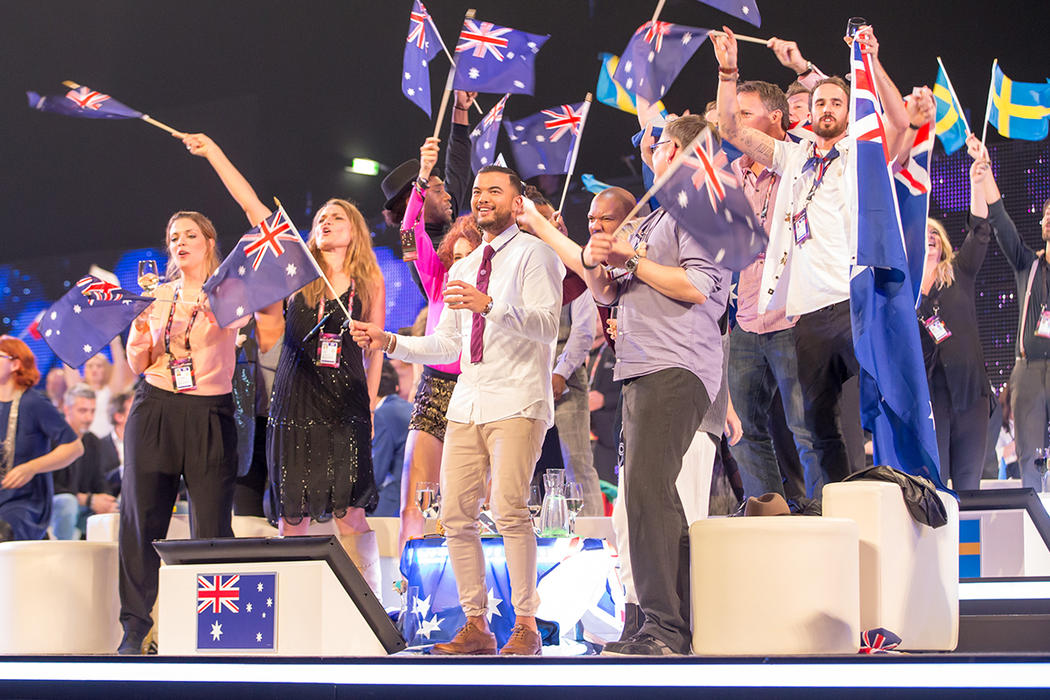
Perhaps it’s the fact that we’ve been duly watching the contest for over 30 years, or maybe they just noticed our penchant for getting dressed up and having parties, but this year, the European Broadcasting Union invited Australia to compete. In the Stadhalle press centre, if you hovered near an Australian flag for longer than 20 seconds, chances are you’ll have been approached by an obscure Eastern European country for an interview consisting mostly of the question: “So, what the heck are you doing here?”
Guy Sebastian remained the favourite the entire week through, his soul pop track Tonight Again, drawing an enthusiastic reception at the rehearsals. He was pipped at the end by Sweden’s Mans Zelmerlöw, who fist bumped some green screen children, had his chest blown apart by some red lighting, and wore some truly alarming leather pants.
#5 There’s no atmosphere like Eurovision

There’s nothing quite as hair raising as 10,000 people screaming themselves hoarse, waving country and Pride flags, singing along to a power ballad while rainbow light pours forth from the stage. Inside the Stadhalle, the body heat is overwhelming, and coupled with the plumes of fire that spew forth, it has a pretty detrimental effect on people’s face paint. Then there’s the spectacle: Moldova brought cartwheeling stripper cops, Lithuania made out on stage, the UK had flashing dresses, Serbia has phantom of the opera back up dancers, Slovenia had an air violinist, Armenia were dressed as Elves. You genuinely could not make up this stuff. Yes it’s outrageous, and almost too kitsch to function, but thank heavens it exists.
(Lead image: Eurovision/Facebook)
Got the Eurovision bug? keep the dream alive. Check out Qantas flights to Europe here.
Jules LeFevre grew up in Byron Bay, and although she now resides in Sydney she goes home regularly to eat her parents food. She mostly writes about music, when her editors let her. She has a sincere passion for Taylor Swift, chillwave music, and Mexican food.

